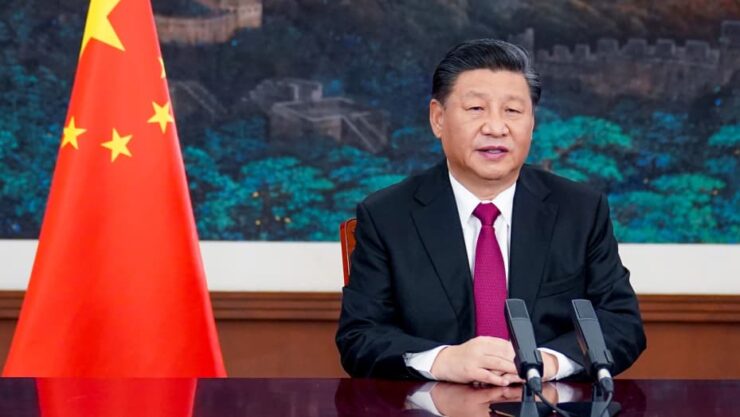
According to a Chinese proverb two tigers cannot stay on a single mountain. This seems to be absolutely fitting with the current Chinese foreign policy. China under Xi Jinping has shed its image of a country concerned primarily with economic development to one which focuses on asserting the hegemony of the Sinic hard power. But getting things done the hard way doesn’t always help, particularly when it involves relations among sovereign nation states. China which sought to present itself as the best friend of the Asian countries which would lead Asia to a new Asian century, is slowly being eroded thanks to China’s own mistakes.
Losing allies
Xi Jinping’s tightening grip has resulted in him being handed an unprecedented third term in office amidst show of military force by the armed forces wings of the PLA. This has occurred in the backdrop of increasing concerns among its allies. China is at loggerheads most of its major allies. Australia and Japan has made it very clear by becoming a part of the Quad and AUKUS security grouping. Japan has increased its defence spending for the first time in many decades to counter the threat from the dragon despite its pacifist constitution restricting the increase in defence spending. India which maintained cordial ties with Beijing in the last decade despite an unresolved and un-demarcated border has too increased its defence spending manifold and has scaled up its border infrastructure to counter the expansionist aims of China. The fact that India’s testing of the Agni-V ICBM took place at a time of border tensions comes as no surprise.
The South China Sea is another area of contestation- countries like Vietnam, Philippines, Malaysia, and Indonesia are at the receiving end of the Chinese threats. China has not recognized the 2016 verdict of the Permanent Court of Arbitration set up under the aegis of the UNCLOS, 1982 which rejected Beijing’s territorial claims in this extremely important strategic waterway- this has contributed to more tensions. To make matters worse, China has built several artificial islands around the Spratly and Paracel islands to bolster its territorial claims.
Another issue is the debt trap diplomacy which Beijing has excelled at through Xi’s pet project- Belt & Road Initiative, this has raised red flags in several countries like Sri Lanka, Maldives, Iran, & even Cambodia which has ordered either a thorough investigation into the nature of the projects or its outright cancellation. An excellent example is that of Maldives and Malaysia which has cancelled Chinese projects because of the lack of transparency in the process of development. Even Pakistan- which is China’ iron brother has seen sporadic violent protests against Chinese investments in Balochistan, Khyber Paktunkhwa inter alia. Human rights concerns have raised against the projects implemented particularly the Gwadar port project which is a critical part of the Belt Road Initiative in South Asia.
China is on a slippery slope and Xi is clearly losing plot of how to not alienate one’s allies.
Utilising the opportunity
Someone’s loss is another’s gain. China’s repeated diplomatic blunders provides India provide with an excellent opportunities to shore up its presence in Asia. To begin with, India should become an active part of the Build Back Better World (B3W) a US infrastructure alliance to counter the BRI. India must make strong diplomatic outreaches to different Asian countries- even China’s staunchest allies with the intention of reducing their reliance on Chinese finance & technology.
A key area which holds immense potential for India is the export of vaccines, there has been several concerns regarding the efficacy of Chinese vaccines amidst high price. India could easily exploit this dissatisfaction with Chinese vaccines & Chinese involvement in the origin of the pandemic to promote the India made vaccines not only in Asia but also on the world stage.
Beijing’s military muscle flexing in the South China Sea or for that matter the routine disputes that it has with its neighbours regard territorial disputes also allows India to develop a firm anti-China military alliance, this alliance should not the reinforcement of the Quad, but should have a completely new orientation towards solving the problems of terrorism, radicalism and more importantly Sinic military assertiveness in Asia. India can also choose to upgrade the level of this alliance to the level of national security advisors which can highlight the seriousness of India and its anti-Beijing allies intention to counter and if necessary combat the bellicose behaviour of the Chinese regime.
Conclusion
China despite claiming to be the rising star of Asia is besieged with plethora of problems, India in such situations should follow a realist-pragmatist approach to its Beijing policy and should fully utilize China’s blunders to its advantage, because global politics doesn’t provide such a chance.
– The writer is currently working as a Research Associate at Defence Research and Studies (dras.in) and is a columnist. The views expressed are personal and do not necessarily reflect the views of Raksha Anirveda








